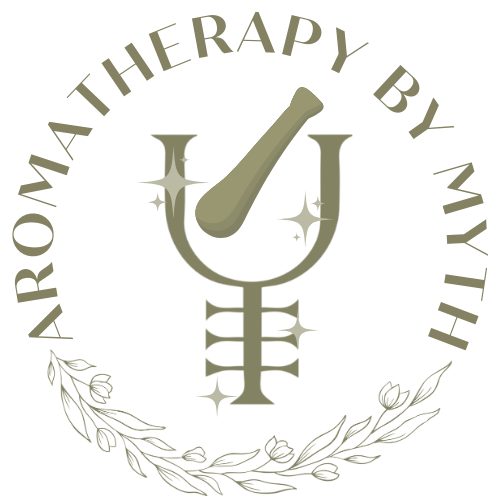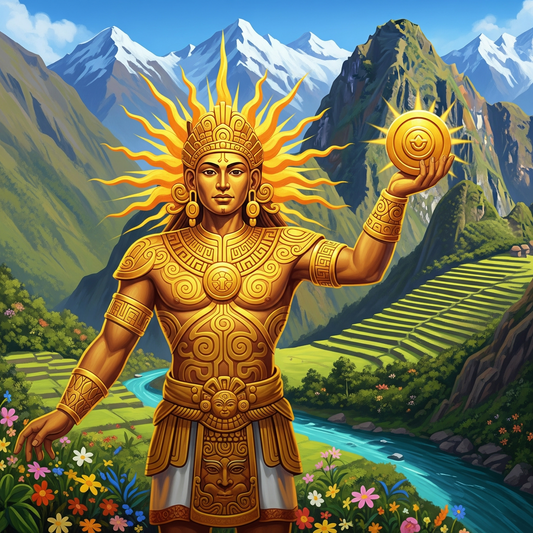The Dawn of Inspiration and Divine Harmony
Share

Apollo, the radiant son of Zeus and Leto, was the epitome of youthful beauty and divine grace. From his birth on the floating island of Delos, bathed in golden light, his destiny was intertwined with brilliance and power. Even in his infancy, his divine nature shone through. Legend tells that just days after his birth, he slew the monstrous serpent Python, which had been terrorizing his mother, claiming dominion over Delphi and establishing his sacred oracle there. The air around Delphi, even then, was said to carry a unique fragrance - the zesty brightness of wild oranges growing in the nearby groves, symbolizing Apollo's vibrant energy and life-giving power; the cool, crisp scent of mint that grew along the sacred springs, representing the clarity and inspiration he bestowed; and the invigorating, clean aroma of eucalyptus from the ancient trees on the slopes of Parnassus, embodying the healing and purifying aspects of his divine nature.
As the god of light, Apollo drove his golden chariot across the heavens each day, bringing forth the dawn and dispelling the shadows. His presence was life-giving, nurturing the growth of plants and bestowing warmth upon the world. But his light was not merely physical; it was also the light of intellect and inspiration. He was the patron of music, leading the Muses in their celestial harmonies, and the god of poetry, his words flowing with eloquence and prophecy. The scents of orange, mint, and eucalyptus were said to be his constant companions, inspiring his melodies and infusing his verses with a unique vibrancy and depth.
Apollo's skill with the bow was unmatched, his silver arrows swift and unerring, capable of bringing both swift death and the cessation of plagues. He was also the god of healing, his son Asclepius inheriting his knowledge of medicine. The purifying scent of eucalyptus was often invoked in healing rituals, while the revitalizing aroma of orange was believed to restore strength and vitality. Temples dedicated to Apollo dotted the ancient Greek landscape, centers of worship, prophecy, and the arts, often adorned with branches of mint and orange blossoms, their scents mingling with the smoke of incense and the sound of hymns.
However, Apollo's life was not without its sorrows and challenges. His pursuit of the nymph Daphne ended in heartbreak as she transformed into a laurel tree to escape his advances, a tree that would forever be sacred to him. His rash judgment in the musical contest against the satyr Marsyas led to a brutal punishment, a stark reminder of the consequences of hubris. Yet, even in these moments of darkness, the memory of the vibrant scents of orange, the soothing coolness of mint, and the purifying strength of eucalyptus served as a reminder of the beauty and balance that Apollo represented.
Despite these trials, Apollo remained a vital and revered deity in the Greek pantheon. He represented the ideals of beauty, harmony, and reason, a guiding light for mortals seeking knowledge, inspiration, and understanding in a world often shrouded in darkness and chaos. The scents that accompanied him—the lively orange, the clear mint, and the invigorating eucalyptus—became intertwined with his very essence, a testament to the power of nature to inspire the divine. The echoes of his lyre and the wisdom of his oracles resonated throughout the ancient world, shaped by the vibrant, refreshing, and grounding inspiration he drew from the world around him.









